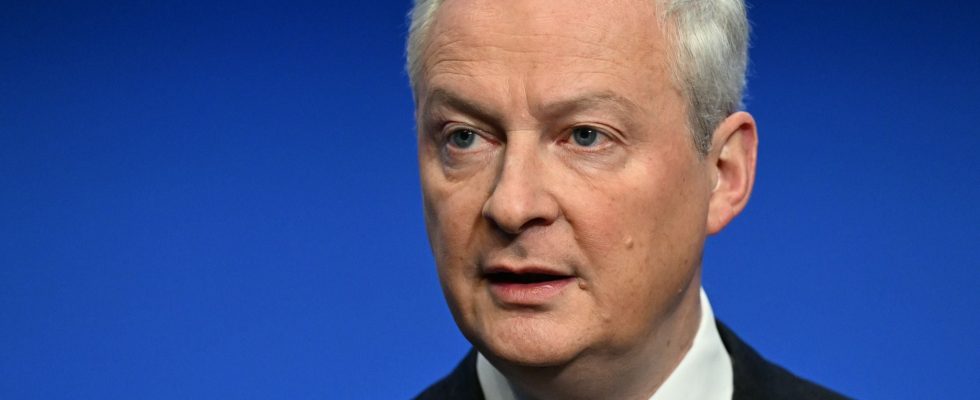The government was (almost) right. French GDP remained stable in the fourth quarter of 2023 and increased by 0.9% over the whole year, after 2.5% in 2022, INSEE announced on Tuesday. As a reminder, the executive had bet on annual growth of 1%.
Growth was zero in the other three quarters, with the National Institute of Statistics having revised that of the third quarter upwards by 0.1 point, previously announced at -0.1%.
In detail, final domestic demand (excluding stocks) contributed negatively to GDP growth in the fourth quarter (-0.1 point after +0.4 point in the third), due to the drop in business investment (-0.7% after + 0.2%) and household consumption (-0.1% after + 0.5%).
Conversely, foreign trade rebounded in the fourth quarter and contributed positively to GDP growth (+1.2 points after -0.1 points). Furthermore, if exports remain almost stable (-0.1% after -0.6%), imports are in sharp decline (-3.1% after -0.4%).
A 1.4% growth target difficult to achieve in 2024
“The global environment, and therefore the external demand addressed to France, was better than what we feared,” explained the chief economist of the Bank of France, Olivier Garnier, to the National Assembly in mid-January.
He also underlined an easing of inflation “a little faster than expected”, even if on average annual prices increased again by 4.9% in 2023 after 5.2% in 2022, but with a fairly marked slowdown. at the end of the year.
The difference is significant again this year between economists’ estimates and growth of 1.4%, which the government has not yet officially renounced. But due to a growth gain of 0.1% achieved for the whole of 2023, according to INSEE, such a level seems increasingly difficult to achieve in 2024.
In an interview with the Tribune Sunday this weekend, the governor of the Bank of France François Villeroy de Galhau predicted a growth rate of around 0.9%, with the return of household consumption by 2024.
Slight increase in French household spending
Household consumption, which accounts for more than half of gross domestic product, would thus take the place of foreign trade this year as the engine of growth. “It’s a more regular and safer engine,” welcomed the governor.
This Tuesday, INSEE also announced slight progress in French household spending in December. This figure is up 0.3% over one month, mainly due to an increase in energy expenditure (+1.7%), and despite the decline in food consumption (-0.7%). .
However, this small increase does not compensate for the overall drop in consumption over the last three months compared to the previous three months (-0.6%), according to the National Institute of Statistics and Economic Studies.
The decline in food spending in December comes from a generalized drop in purchases across all food consumption items – with the exception of tobacco, which increased significantly – and consolidates the drop in food consumption in the fourth quarter of 2023 ( -1.1%).
Concerning other categories of goods, consumption of manufactured products is increasing again (+ 0.6%), as are purchases of durable goods, which continue to increase at a sustained pace (+ 1.4% in December 2023). , after + 1.2% in November).
Limit the public deficit to 4.4% of GDP
With the state deficit already slipping by two billion euros at the end of 2023, Finance Minister Bruno Le Maire will have a lot to do this year to limit the public deficit to 4.4% of GDP if growth is not not completely met, or if social demands are followed by financial concessions.
The abandonment of the increase in taxes on non-road diesel (GNR) for farmers, announced Friday January 26 by the Prime Minister, Gabriel Attal, and which in turn is demanded by the building, should be neutral for the budget.
Bruno Le Maire had in fact promised that the State “would not put a euro in its pocket” with this reform, and would devote the entire economy to the “greening” of these sectors. It is therefore the ecological transition which could pay the price.
